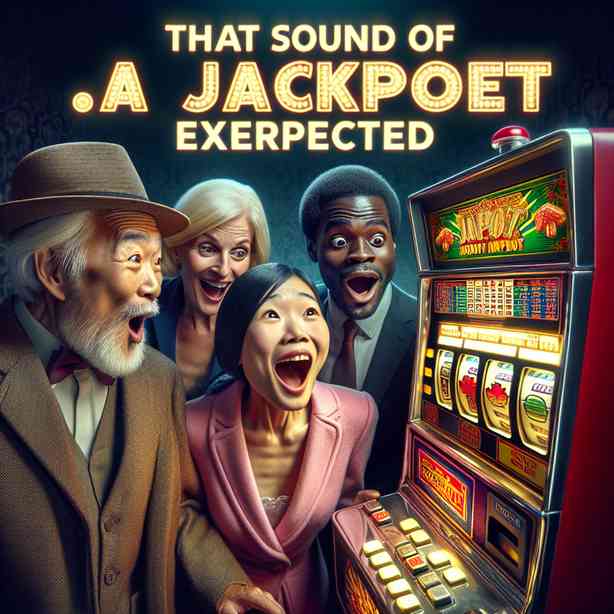
In the world of gambling and casinos, the sound of a jackpot echoing through the halls is often accompanied by astonishment and excitement. This unexpected moment not only captivates the winner but also other players and onlookers. The thrill of such an event goes beyond mere chance; it embodies a unique blend of strategy, understanding the odds, and sometimes, a touch of luck. In this discussion, we will dissect the complexities behind hitting a jackpot, the psychology involved, and the societal implications of such unexpected windfalls.
A jackpot is typically defined as a large prize, often in the form of money, which is awarded to a player or participant who fulfills certain predefined conditions. In casinos, this might be triggered by hitting a specific combination on a slot machine, while in lottery games, it could be winning numbers drawn. The allure of a jackpot lies in its potential to change a person’s life instantly. However, what most players may not realize is that hitting a jackpot, while exhilarating, is a phenomenon that relies on numerous factors.
To understand this better, one must first consider the mechanics of slot machines, which are often the culprits behind those euphoric jackpot sounds. Slot machines operate through random number generators (RNGs) that determine the outcome of each spin. This means that every spin is independent of the last. For players, this creates a sense of unpredictability, which can be both exciting and daunting. It’s essential to bear in mind that while certain strategies can improve the overall experience, the odds are inherently stacked against the player in the long run.
The psychology of gambling plays a significant role in the pursuit of a jackpot. For many, the excitement of the game and the potential for winning big can lead to risky behaviors. The thrill of betting and the anticipation of seeing the reels align to create a winning combination can be intoxicating. Once a jackpot is won, the euphoria can stimulate dopamine release in the brain, elevating mood and reinforcing the desire to continue playing. This is often referred to as the ‘gambling high.’ Understanding this psychological aspect is crucial for both players and casino operators, as it highlights the importance of responsible gambling practices.
In many cases, players believe they can ‘feel’ when a machine is ripe for a jackpot. This belief often stems from personal experiences or anecdotes passed down in gambling circles. Despite the fact that outcomes are entirely random, the human brain seeks patterns and tends to create narratives around games of chance. This imaginative quality is what leads many to gamble again and again, hoping to replicate a past success or hit the elusive jackpot.
The cultural significance of a jackpot cannot be overlooked either. Winning a substantial sum of money in a casino can have different meanings across various cultures. In some societies, hitting a jackpot is seen as a stroke of luck that can elevate one’s social status or bring financial freedom. In contrast, others might perceive it as sheer chance, emphasizing that luck is a fickle mistress. The conversation surrounding gambling also prompts debates on socio-economic factors, as significant winnings can affect not only the winner’s life but also their family, friends, and community at large.
As we further explore the societal impact of unexpected jackpots, one must consider the immediate and long-term repercussions faced by the winners. While winning a large amount of money may seem overwhelmingly positive at first, studies suggest that sudden wealth can lead to a myriad of issues. Many jackpot winners experience a sudden influx of attention from friends and relatives who may seek financial help or support. This can create a strain on relationships and lead to isolation. Furthermore, the psychological effects of managing newfound wealth, often referred to as “sudden wealth syndrome,” can provoke anxiety, stress, and even depression.
In light of these concerns, a significant number of jackpot winners seek financial advice or counseling to help manage their winnings effectively. It is crucial for individuals who experience such an event to lay down a plan that includes saving, investing, and charitable donations, ensuring that the sudden windfall becomes a source of long-term security rather than a fleeting moment of luxury.
Furthermore, casinos and gaming establishments have a responsibility to promote healthy gambling practices. Many have begun implementing measures to educate players on responsible gambling and to provide support for individuals who may struggle with gambling addiction. The sound of a jackpot should not only signify excitement but also the importance of moderation and self-awareness when participating in gaming activities.
In conclusion, the sound of a jackpot that nobody expected bears layers of complexity and significance. From the mechanics of the games to the psychological impact and societal implications for players, every aspect tells a story that stretches far beyond the initial thrill. As the world of gambling continues to evolve, it is vital for both players and establishments to foster an environment that celebrates wins while remaining cognizant of the potential challenges they bring. In this manner, the joyous sound of a jackpot can transform from a fleeting moment of excitement into a catalyst for positive change, empowerment, and reflection for everyone involved.


